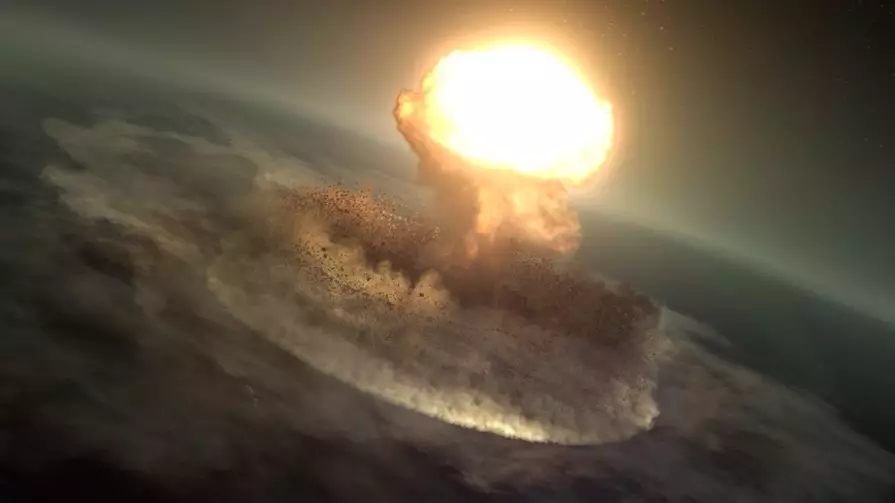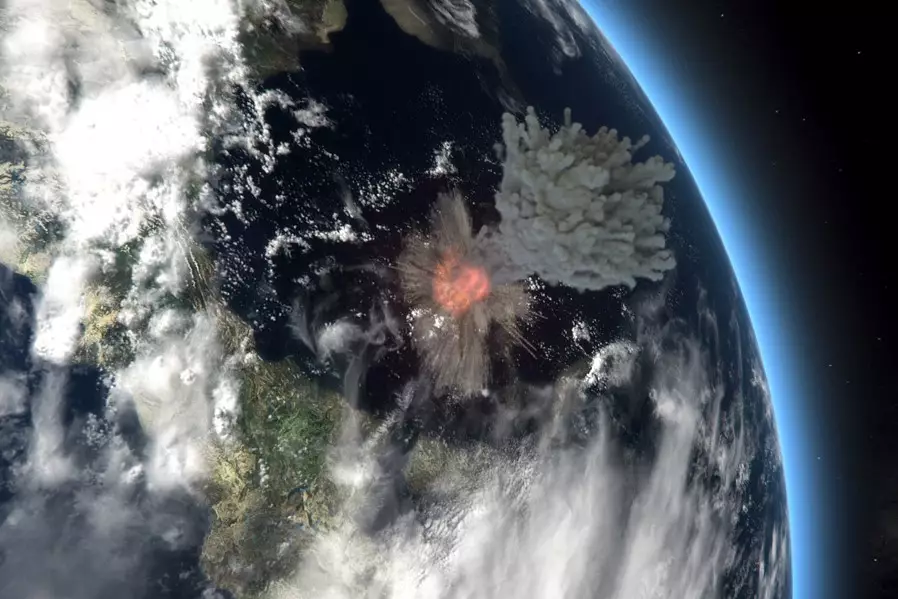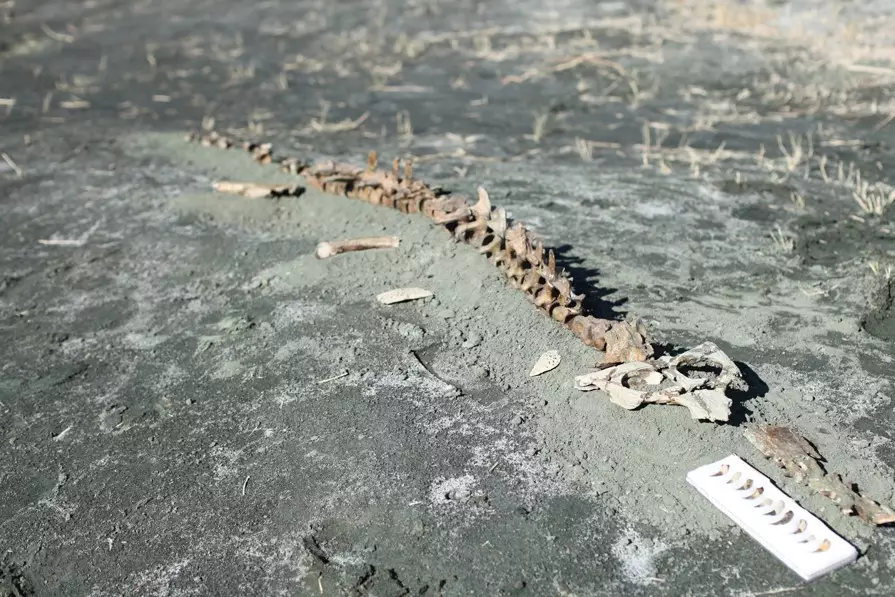
There are a bunch of theories as to why the dinosaurs became extinct. Some focus on too much carbon dioxide, over predation, an interstellar dust cloud or, more commonly, a big fucking asteroid.
The latter tends to be the most frequently referenced reason why the massive and tiny creatures were wiped out - but the exact circumstances have evaded scientists for decades.
Well, a team of researchers believe they have finally unlocked the most crucial details about that moment. They travelled to the Yucatan region in Mexico to the famous Chicxulub crater.

Credit: Barcroft/BBC
The team drilled more than a kilometre through solid rock to examine the Earth's crust. They recovered 260 rock cores, which were sent to the University of Bremen in Germany for further inspection.
Advert
After looking at more than 800 metres of rock samples they've been able to carefully reconstruct what happened.
The asteroid which impacted Earth was nine miles wide, which isn't actually that big. The scientists say it's equivalent to the size of a grain of sand on a bowling ball.
But it was travelling at 40,000 mph and pretty much obliterated everything when it hit. It made a 20-mile deep, 120-mile wide hole in the Earth which caused fragments of the Earth's crust to explode into the air, towering higher than the Himalayas.
Everything within about a 600-mile radius was incinerated by a radiation fireball, which was roughly 10,000 degrees Celsius. You know, just a bit warm.
Now, you might be thinking, 'how did that affect the rest of the planet?'.
Well, not only was the atmosphere horrifically polluted from a massive vapour bloom, but after Earth's crust was sent sky high - sulphates remained in the upper atmosphere and blocked out the majority of sunlight.

Credit: Barcroft/BBC
If you thought things couldn't get much worse, the asteroid also triggered what the researchers believe was the biggest tsunami in history.
Interestingly, however, the team of scientists say it wasn't the size or velocity of the asteroid which made the difference, it was the location. Hitting shallow coastal waters set off a chain reaction which wouldn't have been as large had it struck in the Pacific or Atlantic Ocean.
Professor Alice Roberts said: "As the clouds started to clear, plants came back to life and a tiny group of animals came out of hiding to inherit the Earth. With the dinosaurs gone, suddenly the landscape was empty of competitors and ripe with possibilities.
"Just half a million years after the extinction of the dinosaurs and landscapes around the globe had filled with mammals of all shapes and sizes."
The team's findings will be presented on the programme The Day the Dinosaurs Died on BBC2 on Monday at 9pm.
Featured Image Credit: Barcroft/BBCTopics: Dinosaurs